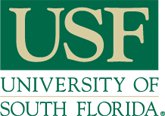Below is a summary of the abstract you submitted. Presenting author(s) is shown in bold.
If any changes need to be made, you can modify the abstract or change the authors.
You can also download a .docx version of this abstract.
If there are any problems, please email Dan at dar78@pitt.edu and he'll take care of them!
This abstract was last modified on May 12, 2021 at 10:22 a.m..

SEA PHAGES is highly effective at preparing young scientists not only due to the authentic research but also due to its impact on the student’s science community values and self-efficacy. These last psychological measures are validated by the PITS survey and clearly support the hypothesis that students who feel valued show higher levels of academic success and retention in STEM disciplines. We also have shown (through our own pre-post survey instruments), that students in our PHAGES cohort grow in their Sense of Belonging to University and Sense of Belonging to STEM. Other data show that how faculty and TAs engage with the PHAGES cohort each year has a profound influence on all of these community values and making the students “part of the team”. Each institutions PHAGES program is unique in how it is managed and how faculty build in “extras” that personalize the program and go beyond the scientific program elements. For example, we provide students SEA PHAGES logo white lab coats at the beginning of the semester, bake phage cookies and the peer TAs that work the course write personalized post it notes of encouragement to each student at different times of the semester that are left on their bench. However, the one activity that appears to have one of the highest impacts is our Phage Throw Down that we do at the end of each semester. The Phage Throw Down is a competition where students work in teams of 4-5 to solve various creative problems related to the course content. We build this up over that last several weeks of the semester and treat it as a culminating celebration of the completion of course. We have utilized several different types of exercises, but usually there are four rounds of competition with round winners getting some small tokens from a gift box. In round 1, the groups solve 6 visual puzzles related to phage terms; in round 2 the complete “alphabet soup” that requires listing a phage term for each letter of the alphabet, points are only awarded if the entry is not the same as any others; round 3 is another 6 visual puzzles and round 4 is termed “titer fight” that is based on determining a phage titer with specific information. The total of all 4 rounds are totaled and result in the winning group who all get certificates. Typically, the competition is very close with all groups having success in at least one of the 4 rounds. End of semester course surveys show that students really enjoy these extras and feel they add extra value to the course.

